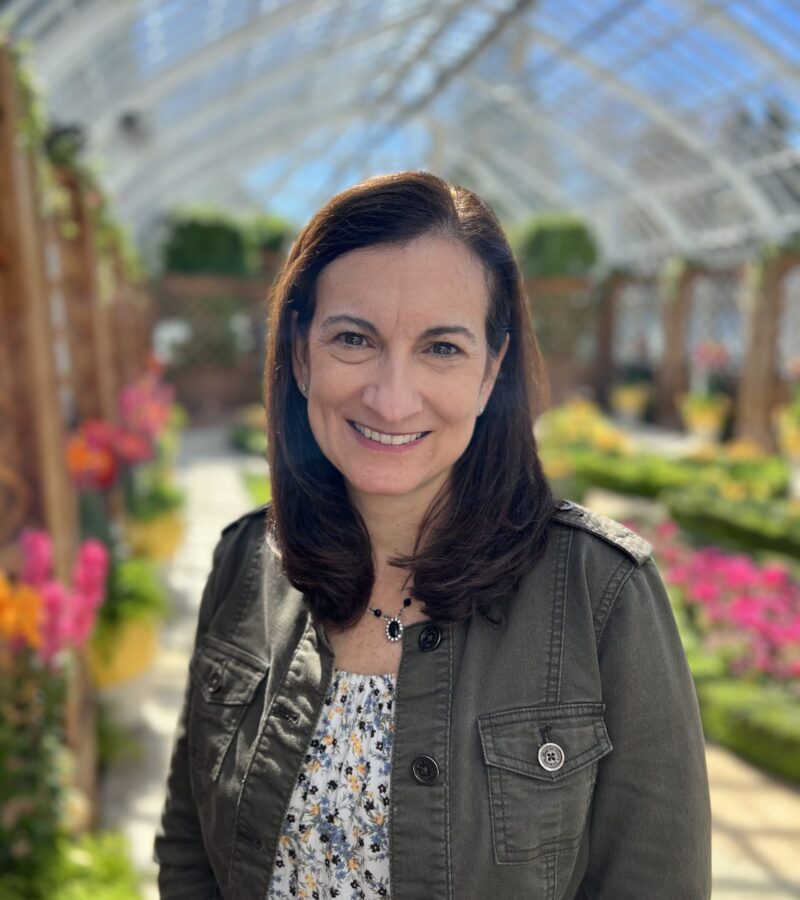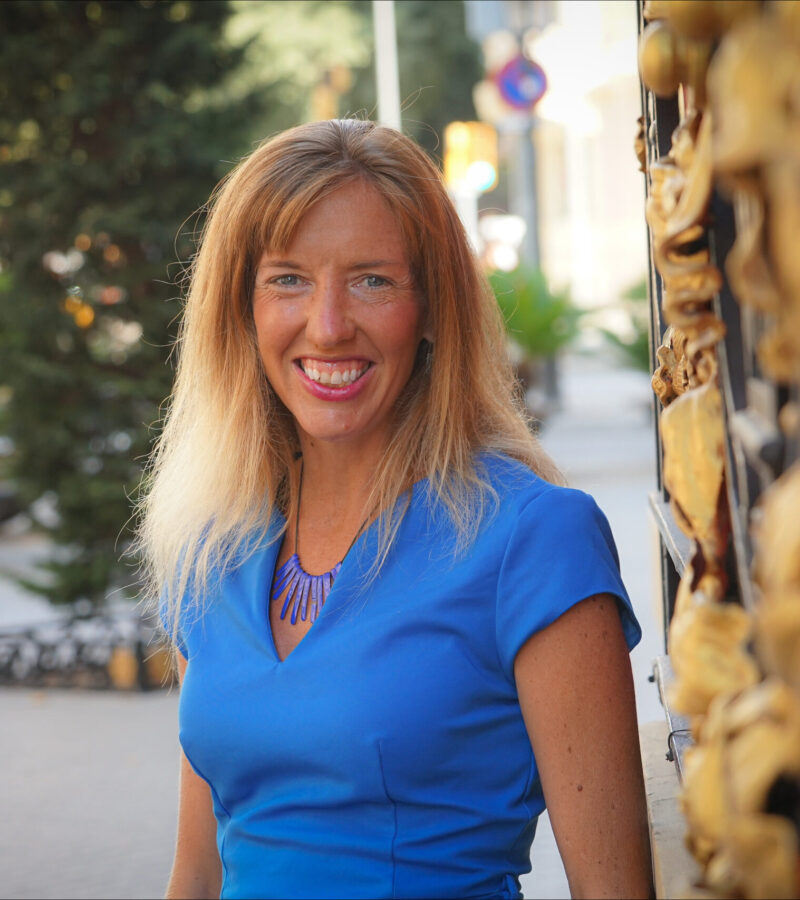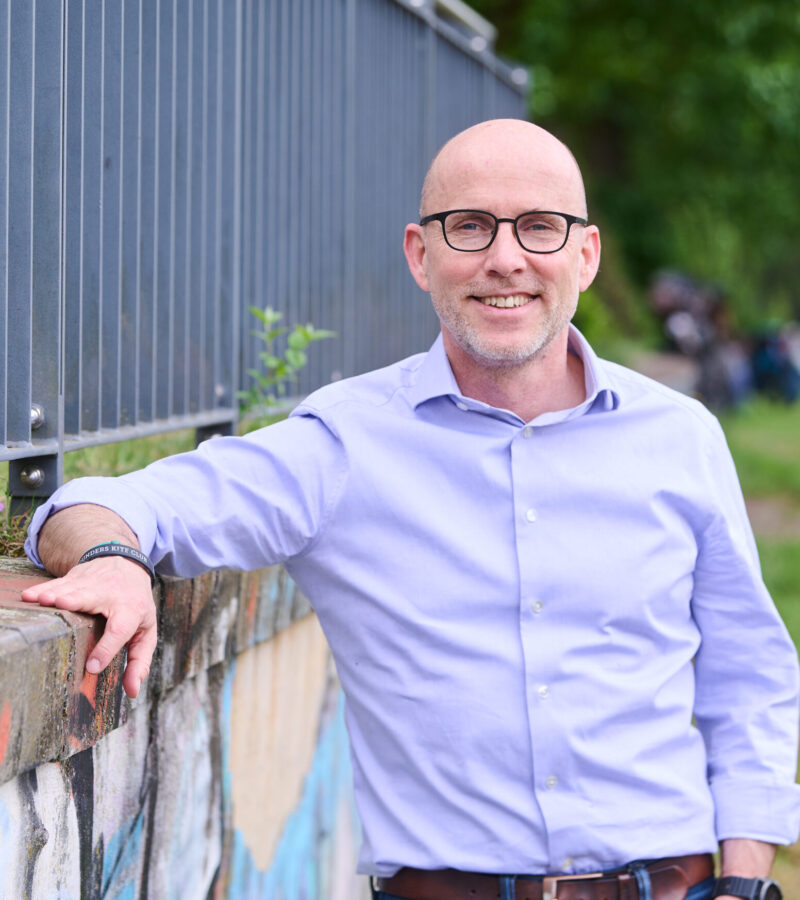April 22, 2024
This Earth Day, we highlight the noteworthy efforts of three Lauder alumni who are working actively in their careers to address complex and urgent environmental challenges and build a more sustainable future. All three alumni, who occupy a strategic position at the intersection of business and sustainability, offer ways in which the private sector can not only navigate climate concerns but make a meaningful difference.
Sarene Marshall is focused on climate change mitigation through investments in environmentally beneficial projects. Kat O’Brien is engaging major corporations to fund large-scale forest protection. And Alexander Piutti is utilizing AI-integrated technology to address food waste within the supply chain and drive down carbon emissions.
Read on to learn more about the contributions of these Lauder alumni and the diverse sustainability initiatives that are making an impact around the world.

Sarene (Riley) Marshall (G’99, WG’99)
Sarene Marshall is the Chief Sustainability Officer for Galway Sustainable Capital, a financial company focused on investing in environmentally and socially beneficial projects. Based in Virginia, Sarene is a graduate of Lauder’s Latin America (Spanish) program and has spent most of her postgraduate career working in sustainable development. After years of leading sustainability efforts at non-profits such as The Nature Conservancy and the Urban Land Institute, as well as the LatAm/Caribbean-focused Inter-American Development Bank, she says she “wanted to more squarely address the opportunities to transition energy and industry.” Her pivot back to the private sector as Galway’s ESG lead was attractive, she explains, “because the levels of capital available and recent technical innovations make immediate, scalable impacts possible. Many of our solutions to climate change – such as energy-efficient buildings – are technically and economically feasible today.”
Sarene argues that Galway’s portfolio of environmentally-related investments is evidence that doing good does not have to mean sacrificing financial returns. “The fact that Galway exists as an option for a mission-driven person like me is encouraging,” she says. In just one example, Sarene cites Galway’s financing of a commercial composting operation and its upgrade to vermicompost, which uses worms to convert agricultural waste into a nutrient-rich soil additive. “This process,” she explains, “not only keeps organic waste out of landfills where it would decompose and generate methane (a potent greenhouse gas), but it also produces a natural amendment that can displace damaging carbon-intensive synthetic fertilizers.” Sarene adds, “I am particularly passionate about these investments that produce multiple benefits.”
Outside of Galway, Sarene, who is an established thought leader in the areas of resource conservation and climate resilience, teaches part-time at Penn as well as in Northwestern University’s Sustainability and Energy Program.

Kat O’Brien (G’11, WG’11)
Kat O’Brien is the Vice President of Corporate Engagement at Emergent, an NGO that mobilizes financing for forest protection programs.
A graduate of Lauder’s Latin America (Spanish) Program, Kat has had a diverse career spanning sports journalism, marketing, product management, and sustainability. Raised in Davenport, Iowa, Kat spent most of her adult life in NYC, but now calls Spain home. Following various shorter stints in the country, including an internship at Real Madrid during her time at Wharton/Lauder, Kat’s long-held aspiration to move to Spain was realized in 2022 when, she says, “an opportunity to do high-impact work came up with the Valencia startup, ClimateTrade. Now working with Emergent, I can continue in sustainability but on a larger scale, engaging corporate partners like Amazon, Bayer, Salesforce, and Airbnb.”
As an intermediary between major governments and the private sector, Emergent coordinates the LEAF (Lowering Emissions by Accelerating Forest Finance) Coalition which aims to halt deforestation through the sale of high-integrity forest carbon credits, and in doing so, dramatically slow climate change.
Kat explains, “I was excited by both the nature of Emergent’s work and the volume of impact.” LEAF is the largest ever public-private effort to protect tropical forests. Launched in 2021, it has already mobilized more than $1 billion in forward purchase agreements of carbon credits to fund forest protection. Says Kat, ”we’re not just combating climate change, but also championing biodiversity and sustainable development goals on a global scale.”

Alexander Piutti (G’96, WG’96)
Alexander Piutti is founder and CEO of SPRK.global, an AI-integrated technology platform designed to reduce food waste in the supply chain and, in turn, drive down carbon emissions.
A graduate of Lauder’s Europe (French) Program, Alexander grew up in both Germany and Asia. Prior to founding the Berlin-based SPRK.global in 2020, Alexander had been an engineer, angel investor, and innovation coach, and helped to build several companies.
A cancer misdiagnosis in 2014 and the birth of his first child in 2015 inspired him to build a business around protecting the planet’s resources for future generations. “There was a very strong inner voice,” he says, “I started looking at global problems and I got stuck on food waste. I just simply couldn’t believe that there was such massive overstock. Out of curiosity, a need to understand, and a desire to find a solution, I founded SPRK.global.”
So how does SPRK.global work? The company’s increasingly AI-integrated B2B distribution platform, akin to Amazon or Airbnb, strives to collect real-time information about food in the supply chain, such as where and when an oversupply occurs and what goods are available. The platform then finds stakeholders that can utilize this oversupply, including processing companies and NGOs. This approach aims to optimize the supply chain, reducing overproduction, conserving resources, and lowering CO2 emissions.
Alexander explains, “10 percent of greenhouse gases are caused by the problem of food waste alone and 60 percent of food surplus occurs at the beginning and middle of the supply chain which is where we focus our efforts. I’m truly proud of our strong partnerships with relevant businesses along the supply chain. The fact that we’ve also already redistributed over 5.5 million kilograms of food in just four years fills me with immense pride and motivates us to keep pushing forward.” ■



